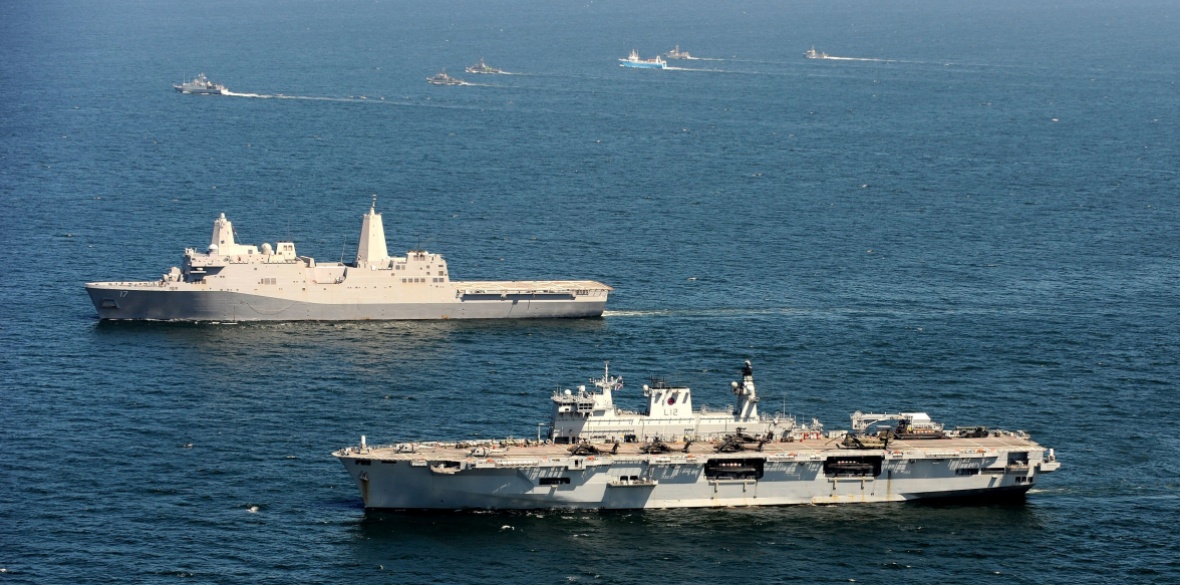This is the last article you can read this month
You can read more article this month
You can read more articles this month
Sorry your limit is up for this month
Reset on:
Please help support the Morning Star by subscribing here
WHAT’S the difference between a ventilator and a fighter jet? Britain doesn’t have a shortage of fighter jets.
In recent years, British ministers have spent billions of pounds of public money on 48 F35 fighter jets.
They will not make us any safer. Like all weapons, they contribute to making the world less safe.
If they are used, it will be in a continuation of the horrific and wasteful wars that British governments have been so keen on lately.
But these deadly aircraft don’t need to go to war to kill people. Ministers hand over billions of pounds of public money to the arms dealers who produce them — billions that could be available to fund things that really do make us safer.
According to the BBC, the cost of each F35 jet is £92 million.
This is almost certainly a vast underestimate, given that the government is also paying for maintenance and other costs.
But even if we go with the figure of £92m, that means that each of these military aircraft costs as much as at least 3,600 ventilators. That’s just for one of them.
With coronavirus posing a major threat to people’s safety and security, you might think that even this government could admit that buying 48 massively expensive fighter jets was not the best way to make us safe.
Far from it. Indeed, it is still committed to buying 90 more of them.
Since the pandemic began, many people have rightly observed the absurdity of imagining that nuclear weapons can make us safe.
The Westminster government’s Trident nuclear submarines continue to patrol at a cost of billions, pathetically useless in the face of a virus. It’s right that we point this out.
But it’s equally important that we don’t mention only nuclear weapons — the same principle is true of all military spending.
For while some armed forces personnel are helpfully delivering medical supplies, others are stirring up international tension by taking part in Nato exercises, scaled back but not cancelled despite coronavirus.
British troops continue to train the Saudi forces that have been targeting civilians in Yemen.
Like most people, I’m grateful to people who build hospitals or deliver medical supplies, whether they are armed-forces personnel or not.
I’m also glad that the arms company Babcock is to divert some resources to making ventilators.
These initiatives, however, involved only a small percentage of the armed forces and arms industry.
Security reviews by successive British governments have for years listed a possible pandemic as a serious threat.
Despite this, those same governments have failed to prepare to defend society from a pandemic, choosing instead to maintain the seventh-highest military budget in the world.
Following Boris Johnson’s election victory, the Queen’s Speech in December promised to increase military spending even further.
There has been no suggestion of the government reconsidering this policy in the light of Covid-19.
The coronavirus pandemic is a deadly reminder that armed force cannot make us safe.
It reminds us that people around the world share the same needs and face many of the same threats.
If there has ever been a time to recognise that human security is not about war, then that time is now.
That’s why the Peace Pledge Union has called a Day of Online Action today for our Healthcare Not Warfare campaign.
We’re very pleased to be working with other groups promoting similar concerns, including Medact and Scientists for Global Responsibility.
We’re calling for military budgets to be reallocated to tackling Covid-19 and related problems.
The money could contribute, for example, to NHS and social-care costs, to initiatives to assist those losing their jobs, or to services to support people whose mental health is affected by isolation.
Longer term, we need to shift “defence” resources to things that really defend us: away from preparation for endless war and towards tackling serious threats to human security, including epidemics, pandemics, poverty and climate change.
We invite you to join the day of action by posting on social media, perhaps with a picture of yourself holding up a message such as “Ventilators, Not Fighter Jets” or “Bombs won’t defend us from Covid-19.”
Please use the hashtag #HealthcareNotWarfare or #DivertMilitarySpending, and tag the Peace Pledge Union.
If social media isn’t your thing, you might prefer to write to a local paper, call a radio phone-in, lobby your MP or mention the issue to your friends and family.
There are other ideas at ppu.org.uk/covid19. This is a vital time to speak out. We may be at home but our voices can travel.
Symon Hill is campaigns manager of the Peace Pledge Union and a history tutor for the Workers’ Educational Association.











